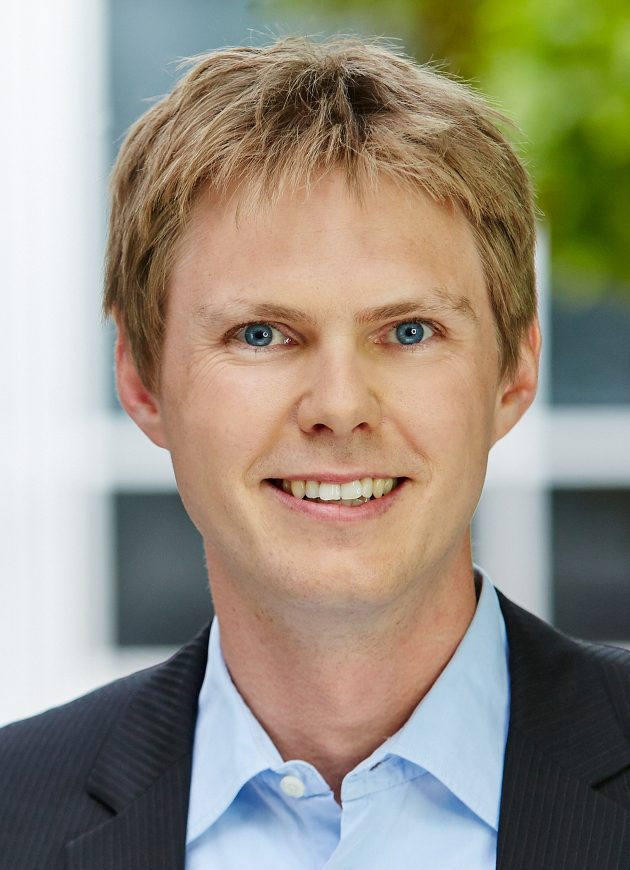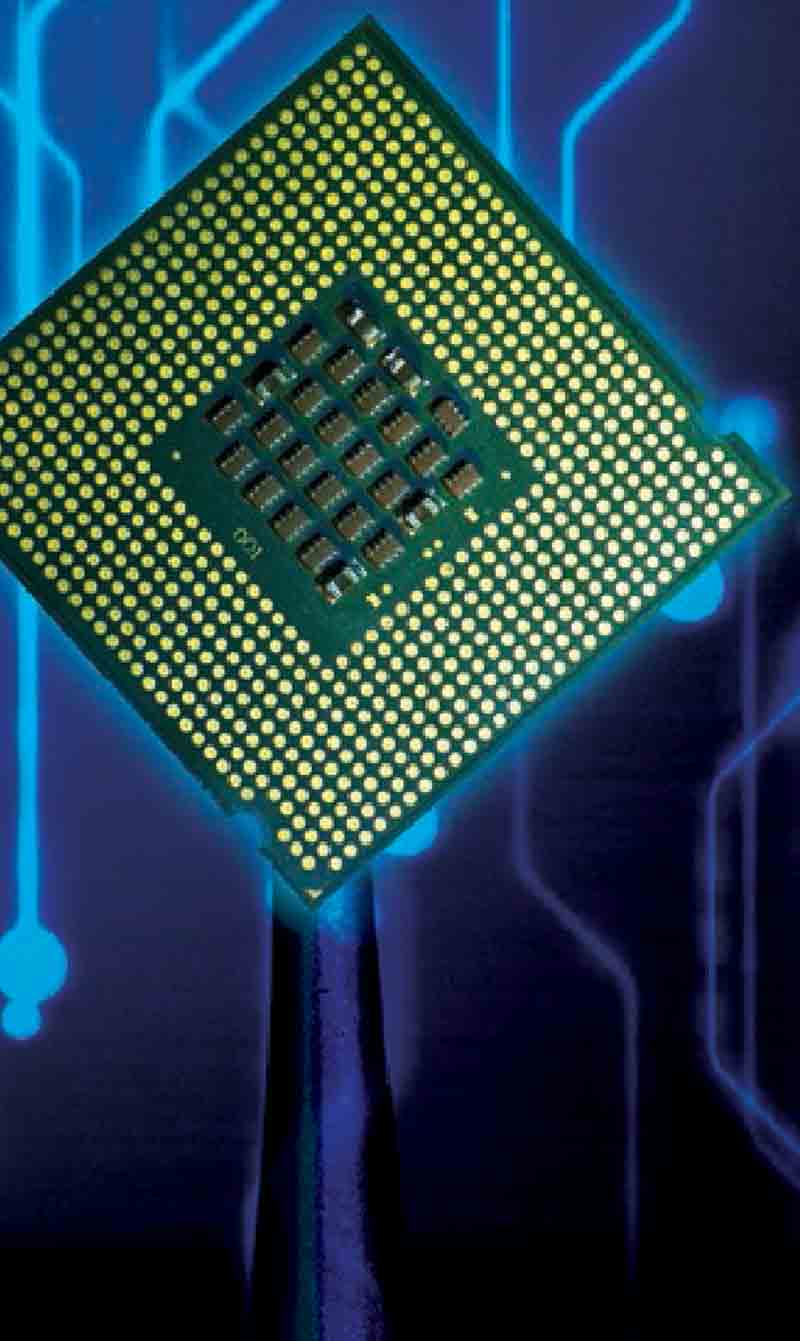A really powerful tool
Quantum technology will drastically change our world. WIEF’s Global Discourse on Quantum Computing will discuss its potential, impact, advantages and, particularly, how it’ll change how we do business. Dr Max Riedel of the European Flagship Project on Quantum Technologies tells us about this new technology and what it can do for us.
It’s almost magic what technology does today. Now, quantum technology is taking technological research and developments further. Google, IBM, Microsoft and even startups are having a go at putting their new quantum computers online to allow people to explore and learn its possibilities. Even though they’re still in their experimenting phases, it shows the potential of what’s yet to come.
Quantum technology refers to technology which relies on the manipulation of individual quantum particles or quantum states and makes use of quantum effects, such as superposition and entanglement. Some quantum technology, like atomic clocks in navigation systems, we already use every day. Others will hit the market in the future. In a 2017 report by Morgan Stanley, it’s estimated that high end computing, which includes quantum computing, could double its market value in the next 10 years.

This year, WIEF will explore the potential of quantum computing and how it can fuel significant future innovations. The 8th WIEF Global Discourse on Quantum Computing will be held on 20 September 2018 at the Intercontinental Hotel in Kuala Lumpur, Malaysia. Five speakers will share their expertise and explore opportunities to move this industry forward.
Dr Max Riedel is the project manager of the Quantum Coordination and Support Action which is involved in setting up the European Flagship Project on Quantum Technologies at the University of Ulm in Germany. He tells us more about the latest research in this field, how this technology works and what it’s going to do.
What is quantum computing?
Quantum computing is a powerful tool to solve some mathematical problems that could never be solved with a classical computer. Quantum computers will therefore be used in the future as co-processors to classical computers to speed up certain tasks tremendously.
However, they will not replace classical computers, think of them in a similar way as Graphics Processing Units (GPUs), just much more powerful. One such mathematical problem is factoring of very large numbers, on which all of today’s cryptography is relying. This means that we’ll have to find new methods to encrypt our communication, or to make it save against eaves-dropping in other ways like by using quantum communication.
Quantum computers will also help to understand and optimise chemical processes like material and drug design. For example, a better understanding of high-temperature superconductivity or of nitrogen fixation could have a huge impact on our energy consumption.
Quantum computers are very good in certain linear algebra calculations. Quantum mechanics is basically linear algebra. This can have a great impact on machine learning and AI, where matrix operations play a critical role. To really create an impact here, we need large, error-corrected quantum computers which can handle large amounts of data but in 20 years this could be a reality.
What quantum technology applications will be commercially viable soon?
The first commercially viable applications for quantum computers will probably be something to solve optimisation problems. For example, the optimisation of logistics, of radiation treatment plans, or the order in which complex manufacturing processes are executed. Current machines can’t yet provide an overall speed up compared to classical computers, but the next or the following generation could achieve this.
In general, there are already commercially available solutions for quantum communication and many different quantum sensors for gravitation or magnetic fields. Also, atomic clocks are an already quite old and very mature quantum technology without which no satellite navigation would work. Nuclear magnetic resonance imaging is also a mature quantum technology that is routinely used in hospitals.
How can quantum computers create efficiency?
Quantum computers could help in the future to make computing centres more energy efficient. While a single quantum computer might use more power than a single classical server, a quantum computer might replace thousands of classical processors for certain tasks, which overall saves energy.
Optimisation is one of the first applications, and optimisation is just another word for making something more efficient. So, the opportunities are vast.
Can quantum computers be better than regular computers?
In principle, a quantum computer could be used for the same tasks as a classical computer. However, it would not be faster for most of them. Since a quantum computer will, for a very long time, be less energy efficient, bulkier and less robust than classical chips, it would be not wise to use them where there is no speed.
For the foreseeable future, quantum computers will always be a co-processor to classical computers. That doesn’t mean that this co-processor might not one day become small enough to fit into a PC, or even smartphone. But currently, we can only dream of such small, robust quantum processors.
What are the current challenges in quantum computing?
The biggest long-term challenge is error correction. Quantum systems are extremely fragile and any disturbance from the outside, like fluctuating external fields, thermal excitation, noisy current sources and imperfect timing will damage the quantum state and thus change the computation result. This becomes harder and harder as more qubits are involved [qubits are the basic unit for quantum information].
Error correction is therefore crucial, but not as trivial as in a classical system where you just measure the current state and correct any errors you detect. In a quantum system, the measurement itself would destroy the quantum state and thus the computation.
There are methods of error correction which use auxiliary qubits, but the number of additionally needed qubits becomes quickly very large. If someone found a more efficient way to correct errors, this would be a true quantum leap.
What are the current research developments in quantum computing?
There are many different physical systems that can be used for quantum computing. For some of them like semiconductor qubits, the research still focuses on demonstrating the basic building blocks. This entails controlling a single qubit and the interaction between two qubits with high enough quality. For others like superconducting circuits and trapped ions, it’s more about scaling to higher qubit numbers, while at the same time improving the quality of the basic building blocks.
There’s also a lot of theoretical research on quantum algorithms with provable quantum speed-up and on methods to error-correct quantum computers. Also, software development is taking off. The first open-source libraries are being created.
What kind of equipment is needed to develop quantum technologies or computers?
This depends on the physical system, but generally, because of the sensitivity to noise, all equipment needs to be of highest possible stability. For example, ultra-stable radio frequency (RF) and microwave sources, ultra-stable AC/DC current sources, ultra-stable lasers, super-fast electronics with ultra-accurate timing. The physical systems [for manufacturing capabilities] are chips that need to be cooled to ultra-cold atoms and ions, which are trapped in ultra-high vacuum and require a lot of optics.
A lot of ultras are needed. We indeed need the best possible for many components which often needs to be self-built because it’s not available in the market.
What business opportunities do you see emerging in this industry?
The business opportunities are very similar to those in classical supercomputing information technology. Hardware manufacturing, both components and system integration; software development, from systems software, libraries, tools and applications; computing as a cloud-service and consulting on use-cases and training.
The big computing power will open up new sector-specific business opportunities, which are hard for me to imagine. One example could be virtual chemicals or drug development services which partly replace classical chemistry labs.
___________________
To find out more about the latest research development and innovation in quantum computing, join the 8th WIEF Global Discourse on Quantum Computing on 20 September 2018 in Kuala Lumpur.
Photo by Michał Kubalczyk on Unsplash.





